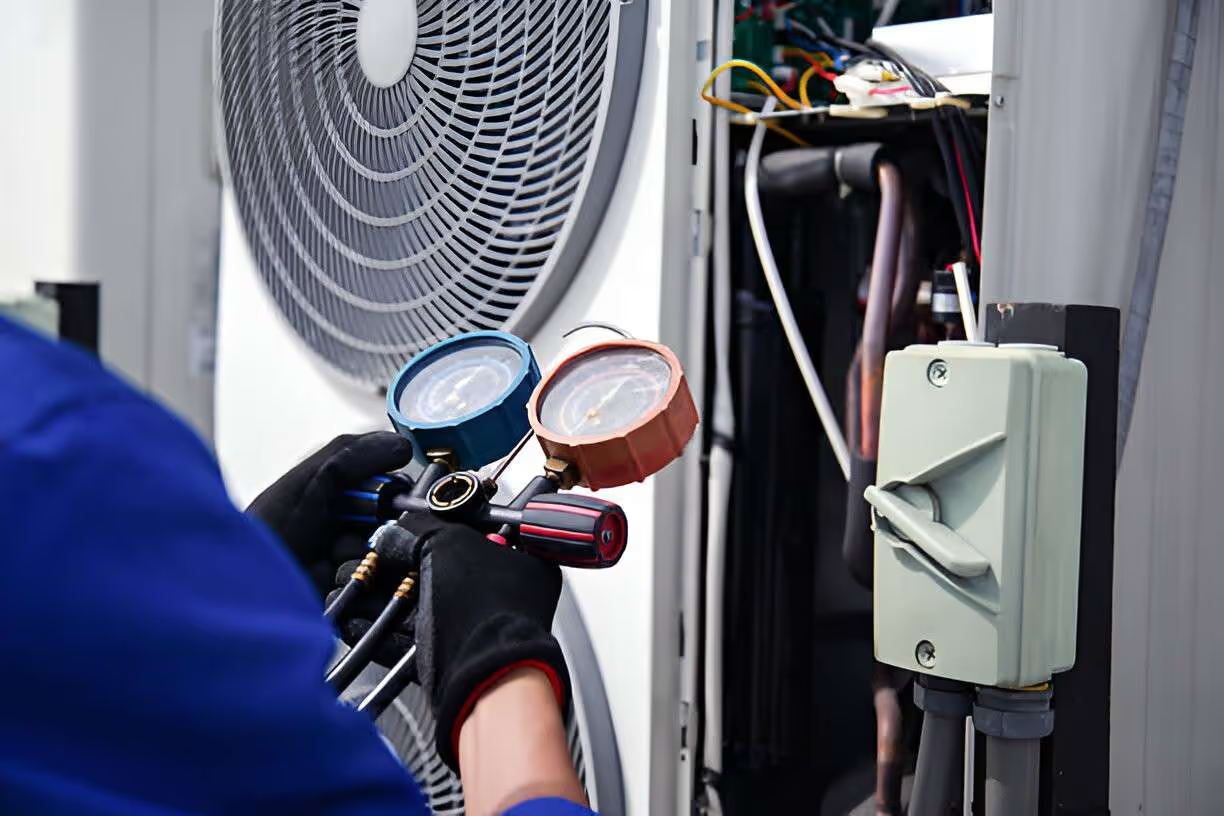AC Tune-Up in Winter Haven, FL


Why a seasonal AC tune-up matters in Winter Haven, FL
- High humidity and constant cooling demand increase the risk of coil fouling, mold, and refrigerant loss.
- Longer run times accelerate wear on belts, motors, and electrical components.
- Local pollen and lake-effect dust can clog filters and condensers faster than in drier climates.
A tune-up minimizes these Florida-specific risks so your system performs reliably during heat waves and stormy weather.
Common AC problems in Winter Haven homes
- Poor cooling or uneven temperatures across rooms
- Excess humidity or condensation on vents and windows
- Short cycling (frequent on/off) or long run times with little cooling gain
- Unusual noises from the condenser or blower motor
- Rising energy bills despite no change in use
- Ice buildup on the evaporator coil
Most of these issues are preventable or correctable with a seasonal inspection and targeted maintenance.
What a comprehensive seasonal AC tune-up includes
A thorough tune-up inspects, tests, and services the major components that affect safety, efficiency, and reliability. A typical seasonal checklist includes:
- Thermostat calibration and settings review: Verify accurate temperature sensing and proper cycling; check programmable schedules.
- Refrigerant level verification: Measure pressures and temperatures to confirm proper refrigerant charge and identify potential leaks.
- Coil and condenser cleaning: Clean evaporator and condenser coils to restore heat transfer and airflow; remove debris from the outdoor unit.
- Air filter inspection and recommendation: Check filters and advise on replacement frequency for local pollen and humidity conditions.
- Belt, pulley, and blower motor checks: Inspect belts for wear, test motor operation, and ensure blower wheel balance for steady airflow.
- Electrical and contactor inspection: Tighten connections, inspect contactors and relays, and test capacitors for signs of wear.
- Safety controls testing: Verify high/low pressure switches, float switches, and emergency shutdowns operate correctly.
- Drain line and condensate pan cleaning: Clear drain lines and check pans to prevent backups and mold growth in humid conditions.
- System performance test: Measure supply and return temperatures, airflow, and running current to document system health and efficiency.
- Duct and register check (visual): Inspect accessible ducts and registers for obvious obstructions or major leaks that affect airflow.
Diagnostic process — what to expect
Technicians begin with a visual inspection and system history review, then move to hands-on diagnostics:
- Confirm thermostat readings against supply and return temperatures.
- Run the system and measure refrigerant pressures and superheat/subcooling to assess charge.
- Check electrical current draw on motors and compressors to detect failing components.
- Inspect coil cleanliness and airflow; measure temperature split across the evaporator to evaluate performance.
- Test safety devices and controls under normal and fault-condition simulations.
- Document findings and recommend repairs or replacements when required.
This process is designed to identify both immediate safety concerns and longer-term efficiency issues so you can prioritize repairs before peak cooling demand.
Common repairs and solutions discovered during tune-ups
- Low refrigerant: Locate and repair leaks, then reclaim and recharge to manufacturer specifications.
- Dirty coils or clogged filters: Clean coils and replace filters to restore heat exchange and airflow.
- Worn belts or bearings: Replace belts and lubricate bearings to eliminate noise and prevent motor strain.
- Failing capacitors or contactors: Replace aging electrical components that can cause hard starting or intermittent operation.
- Drain line clogs: Clear or replace drain lines and treat pans to prevent overflow and mold growth.
Timely repairs during a tune-up often prevent more costly failures later in the season.
Expected service duration
A full seasonal tune-up for a typical residential split-system takes approximately 60 to 90 minutes. Larger systems, multi-zone ductless units, or extensive troubleshooting can extend the visit. The objective is a thorough inspection and testing, not a rushed checklist.
Benefits of regular tune-ups for Winter Haven homeowners
- Improved efficiency: Clean coils and correct refrigerant levels reduce run time and lower energy use.
- Enhanced reliability: Proactive component checks prevent unexpected breakdowns during heat waves.
- Longer equipment life: Routine maintenance reduces stress on compressors, motors, and controls.
- Better indoor comfort and air quality: Proper airflow, clean coils, and functioning drains reduce humidity, odors, and mold risk.
- Safety assurance: Electrical and control testing reduces fire risk and unsafe operation.
For central Florida homes, these benefits translate into greater peace of mind during the hottest months.
Simple maintenance tips between tune-ups
- Replace or clean filters every 1–3 months depending on pollen and household factors.
- Keep outdoor condenser clear of plants, grass clippings, and debris—leave 2 feet of clearance.
- Maintain consistent thermostat settings; avoid extreme setpoint swings that cause stress.
- Run ceiling fans with the AC to improve perceived comfort and allow slightly higher thermostat settings.
- Schedule tune-ups before the high-demand summer period to catch problems early.
Seasonal timing recommendations for Winter Haven, FL
Schedule a tune-up in late spring before sustained heat sets in, and consider a secondary inspection in early fall if your system runs heavily year-round. Because ACs in Central Florida often run nearly year-round, an annual tune-up timed before Florida’s hottest months delivers the best return on comfort and reliability.
Regular, detailed tune-ups targeted to Winter Haven’s climate keep systems running safely, efficiently, and dependably. A complete seasonal inspection and the corrective actions it uncovers are the most effective way to reduce mid-summer failures and maintain comfortable indoor air through Florida’s challenging cooling season.
Service Areas


